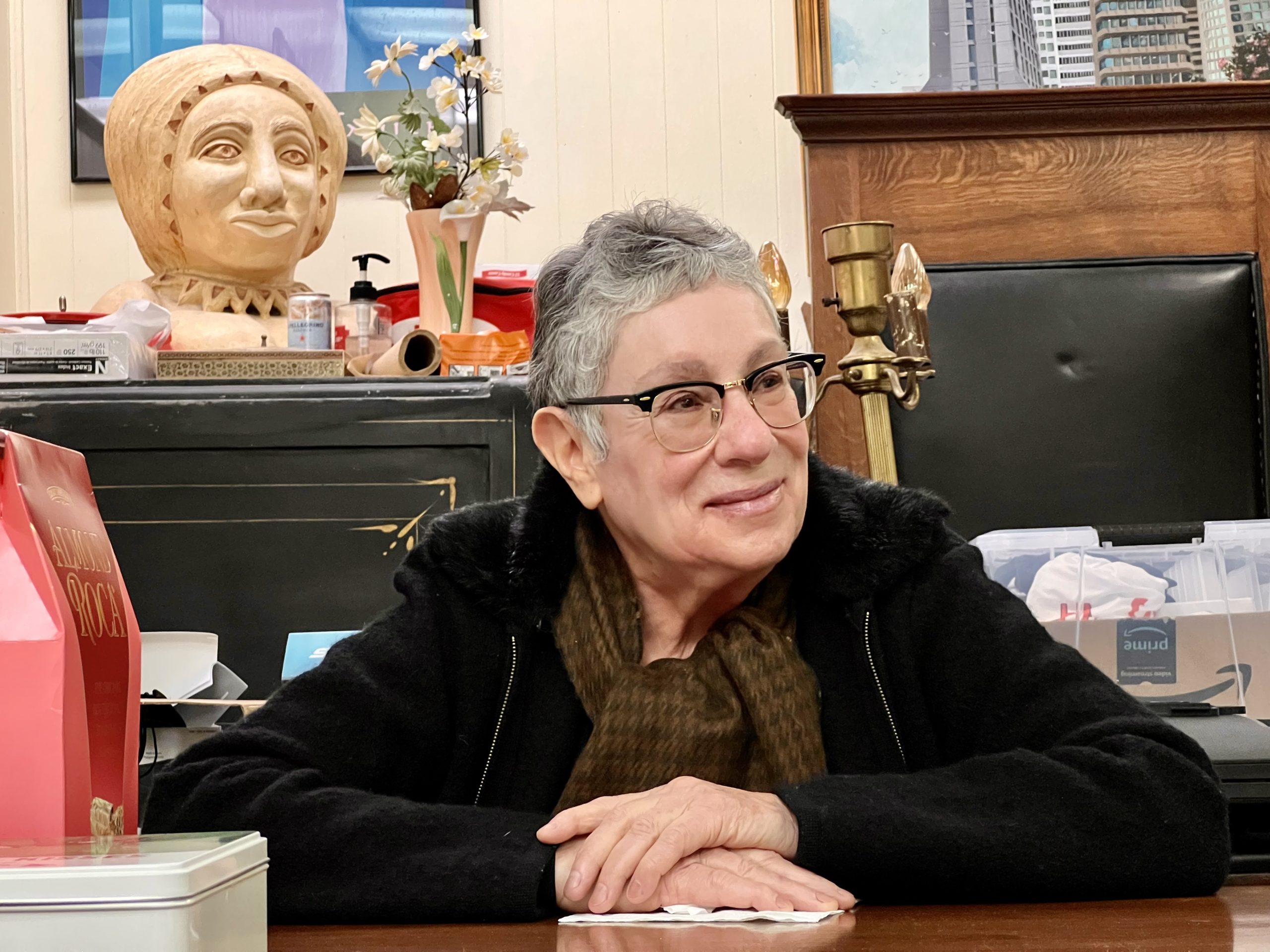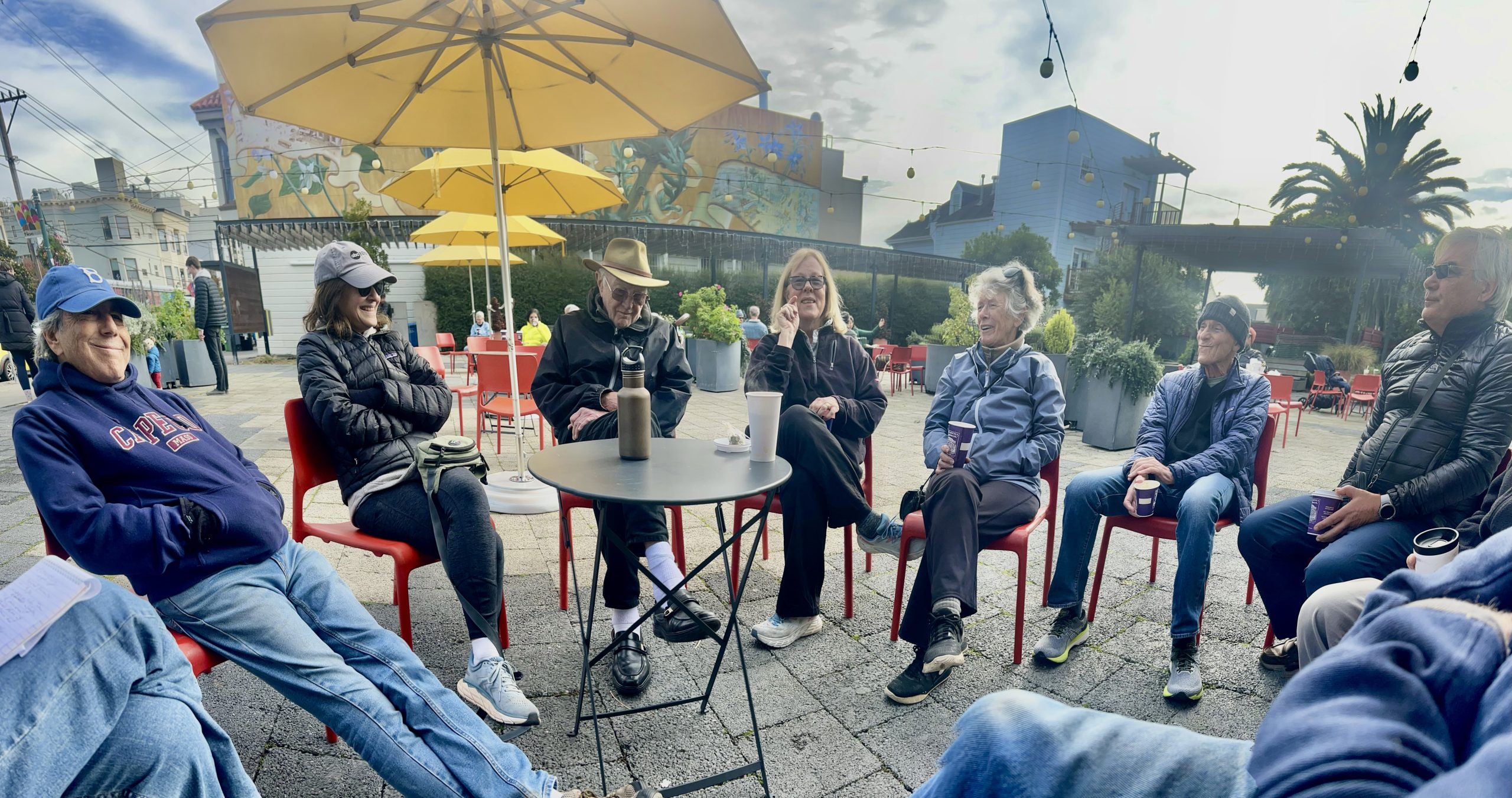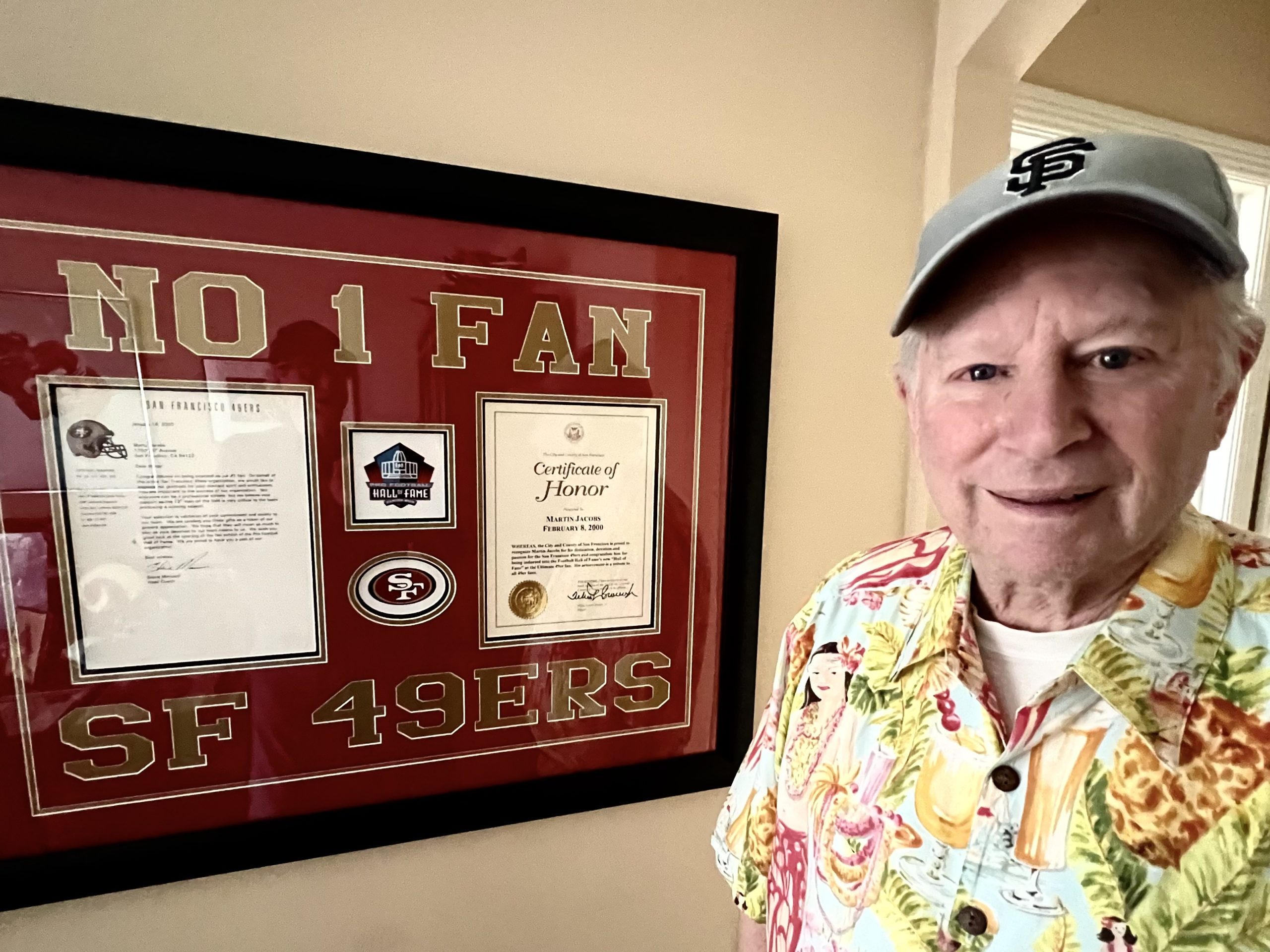Most older adults want to give back to society; the trick is finding the right niche, new study shows
 The majority of older adults want to contribute to society. And about a third actively do. That’s according to a collaborative study by researchers at the Stanford Graduate School of Education and the San Francisco-based non-profit Encore.org.
The majority of older adults want to contribute to society. And about a third actively do. That’s according to a collaborative study by researchers at the Stanford Graduate School of Education and the San Francisco-based non-profit Encore.org.
Findings and recommendations from the Pathways to Encore Purpose Project were presented at the recent 2018 American Society on Aging conference by Encore Project Director Jim Emerman.
For the past two decades Encore, an organization dedicated to connecting people in later life with work opportunities that benefit society, has been looking at the role of purpose. In 2005, its predecessor, Civic Ventures, initiated The Purpose Prize for midlife adults whose volunteer commitments were making significant contributions to contemporary life.
The study defines purpose as a “sustained commitment to goals that are meaningful to the self and that also contribute in some way to the common good, to something larger than or beyond the self.” Purposeful living is “a stable and generalized intention to accomplish something that is at once meaningful to the self and of consequence to the world beyond the self.”
Study participants were asked to rate 10 life goals in terms of importance, and answer questions about their ongoing commitment to their top three. One of those had to be a beyond-the-self goal, and backed by a strong commitment, defined as involvement at least once a month. “We set the bar high,” Emerman said. “Purposeful activity had to be very much part of their identity.”
Defining life goals
The team surveyed a national sample of 1,200 adults ages 50 to 92 and conducted hour-long phone interviews with 102. The study found that:
- The majority of older adults exhibit high levels of pro-social values and behaviors, such as volunteering, helping and caring for others, caring for nature and the environment, endorsing equal treatment for all, and seeking to understand people who are different from themselves.
- Nearly a third of older adults (31 percent) actively pursue goals that are both personally meaningful and contribute to the greater good. “Purpose does not decline with age. Thirty-one percent is as high as the Stanford researchers saw in any age group previously studied,” said Emerman.
- While the pursuit of purposeful living is significantly higher among people of color than among whites and Asians, it is found across ethnicities, age, income, health status and geography.
- Purposeful living does not crowd out other pleasures or personal goals. In fact, a greater percentage of purposeful respondents than non-purposeful respondents saw later adulthood as a time to do self-oriented activities like traveling or taking classes.
- People who are purposeful have a positive outlook on life. Purposeful older adults emphasize the joy and satisfaction they experience in their lives, especially in their beyond-the-self engagements.
- Freedom is important to purposeful and non-purposeful people in different ways. About half those with purpose emphasized the freedom to be involved in things beyond the self; the non-purposeful mostly looked at freedom as relief from the burdensome responsibilities of paid work and childrearing.
What does it all mean?
For older people, it means finding something beyond yourself that you’re passionate about and go after it: tutor children, volunteer, clean the neighborhood park, work for world peace. Though not addressed in the Stanford research, it should be noted that the act of volunteering has “a significant, positive effect on the mental and physical health and well-being of volunteers, especially those who are older and/or low-income,” according to the work of Carr, Greenfield & Marks, Kim & Konrath, Moen & Fields, and others cited in the Encore study.
The study also looked at those who did not fit their definition of active engagement in purposeful living. About half of them were not interested in engaging in any “beyond-the-self” activities. About a fifth of those were involved but, for various reasons such as travel, poor health, and family commitments had not pursued any beyond-the-self activity for the past month.
For organizations looking for volunteers, the study advises:
- Build on people’s specific expressions of interest to find the right match for engaging them in purposeful pursuits.
- Reach out to newcomers in the community, suggesting volunteering as a way they can get to know their new neighborhood and neighbors.
- Connect retired professionals with opportunities to continue using their skills in satisfying ways.
- Help occasional volunteers make the transition to more substantial involvement when they are ready, often after retirement or other life events.
- Expand the use of stipends or other compensation, such as transportation reimbursement or meals, especially for roles that require a sustained commitment.
- Cast a wider net in seeking volunteers. “By only concentrating on the elites (the highly educated, healthy and wealthy), we’re missing a large chunk of the population,” Emerman said.
- Provide transitional support for volunteers when a program closes or changes its focus.
Some purposeful people in San Francisco
Over the past two years, I’ve been fortunate enough to meet and interview many older adults who lead what can be described as purposeful lives. Some were passionate volunteers. Others worked for stipends or minimum wage. Their stories, which I’ve abbreviated here, have been published in the Ingleside-Excelsior Light, the San Francisco Bayview, or sfcommunityliving.org.

Kathryn Summers started the Bayview Imani Breast Cancer Support Group when her little sister was diagnosed with breast cancer. At the time there were no such groups for African-American women. Though her sister did not survive, Summers vows to keep active in the group “as long as I have the time and enough energy.”
Daniel Billings returned to his first love, volunteering, when his company closed and he couldn’t find a job. He had been attending a men’s group at Curry Senior Center before he began volunteering in their dining room. When a ReServe position at Curry became available, he was encouraged to apply. “I love Curry and what they do. I feel like I’m blessed.”
Saralyn Archie is one of seven volunteers who package and deliver groceries to homebound seniors in the OMI neighborhood of San Francisco. She grew up in the neighborhood and many of the elders on her route are the parents of her friends. “I look forward to seeing everyone on my route. I’m looking out for them and they’re looking out for me. They’re my seniors. It’s a treat for me to be able to give something to people.”
Mary Lou Bartoletti calls Sheridan Elementary School in Oceanview-Ingleside “a hidden gem. I knew I wanted to contribute, to volunteer with students in math,” she said. “Best of all, they needed me. It’s really rewarding when a student has a breakthrough; I feel I’m doing something worthwhile.”

Donne Robblee is a classroom volunteer at Monroe Elementary School in the Excelsior District, through the Foster Grandparents program, for which she receives a small stipend. “If kids don’t get a good start, they’ll never catch up. I enjoy helping kids get that chance. It’s neat when you see a child’s face when he gets it, when he starts raising his hand.”
Helen Carter ostensibly teaches computer skills to women attending the computer lab at Senior Disability and Action, a San Francisco nonprofit. What she really does, said her supervisor Alice Chiu, “is create a community. She uses the computer lab to break isolation. They eat lunch together. I hear them laugh. I’ve heard them singing.” Carter, who is paid through the San Francisco ReServe Employment program, is more modest: “I enjoy sharing and helping people learn, especially seniors, and they’re happy learning.”

Robert Mason, a longtime volunteer at his church, Temple United Methodist, began helping in the food pantry, the third largest pantry in San Francisco, once he retired. Concerned about the long wait – sometimes up to an hour – for recipients to get their food, he decided they some improvements. It didn’t take long before he designed a system of time slots– the first among the city’s food pantries. Now no one has to wait longer than 15 minutes. Periodically, they rotate which group goes first, so no one feels left behind.
These are stories from only a few of the people I have met. San Francisco, and I imagine every city, has many older people who want to contribute and whose energy, thoughtfulness and love can make the world a better place.
The encore phase of life “is not a swan song, but a variation on a theme: the desire to go on, even in the face of adversity or loss,’’ Dr. Gene Cohen, whom some call the founder of the field of gerontology, wrote in his 2005 book “The Mature Mind: The Positive Power of the Aging Brain.” “This need to remain vital can lead to new manifestations of creativity and social engagement that make this period full of surprises. … Released from overly negative illusions about aging, people are often stirred by new energy, direction, or purpose.”





